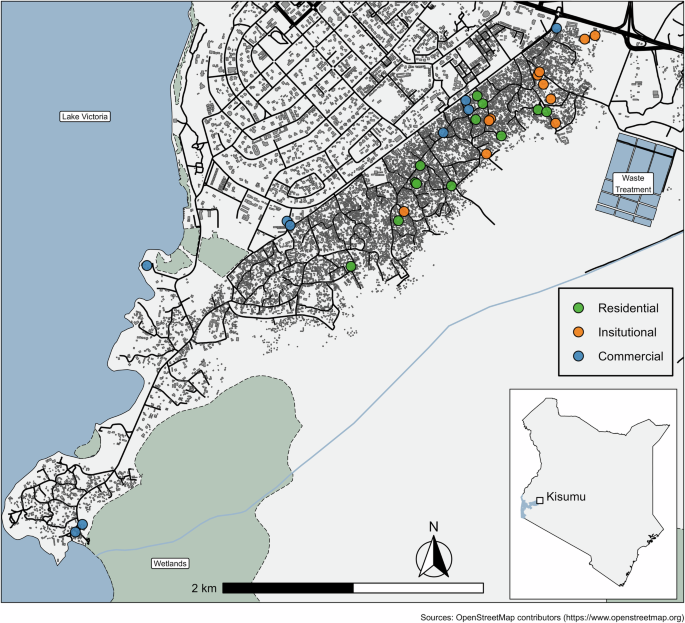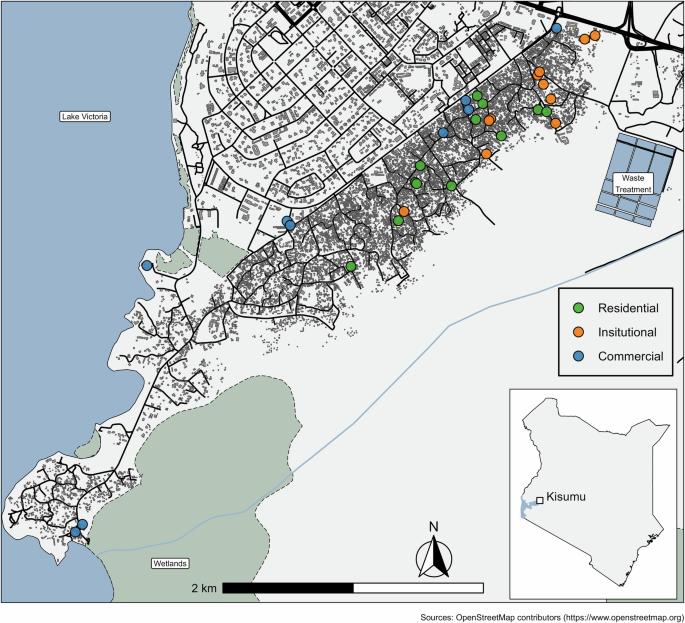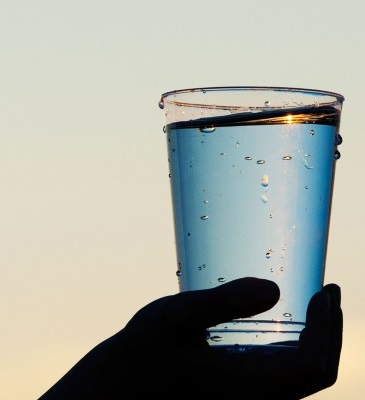基于 ATP 的低资源共用厕所高接触表面近期清洁和消毒评估
IF 10.4
1区 工程技术
Q1 ENGINEERING, CHEMICAL
引用次数: 0
摘要
要提高低资源共用卫生设施的质量并降低疾病风险,就必须采用既严格又实用的清洁度评估方法。利用三磷酸腺苷 (ATP) 生物发光测试,我们对肯尼亚基苏木 32 个共用厕所的高接触 (HT) 表面(内门把手)污染情况进行了评估。在公共厕所,使用 0.5% 氯溶液进行清洁和消毒 (C&D) 后,污染程度最低(每 100 平方厘米平均 log10 相对光单位的调整差值 (aDiff):-1.61;CI:-其次是使用 0.1% 氯溶液的 C&D(aDiff:-1.16;CI:-1.77,-0.55)。ATP 水平与整体可观察到的厕所清洁度无关,与目测 HT 表面清洁度的一致性较差。我们的研究结果表明,这种现场可行的方法可用于检测最近在资源匮乏的共用厕所(ATP 清洁度检测的新环境)中进行的 C&D 的影响,同时也强调了使用有效的 C&D 程序和在清洁规程中处理 HT 表面的重要性。本文章由计算机程序翻译,如有差异,请以英文原文为准。


ATP-based assessments of recent cleaning and disinfection for high-touch surfaces in low-resource shared toilets
Quality improvements and reduction of disease risk for low-resource shared sanitation facilities require cleanliness assessment approaches that are both rigorous and practical. Using Adenosine Triphosphate (ATP) bioluminescence testing, we assessed contamination on high-touch (HT) surfaces (inner door handles) at 32 shared toilet sites in Kisumu, Kenya. In public toilets, contamination was lowest after cleaning and disinfection (C&D) with 0.5% chlorine solution (adjusted difference in mean log10 Relative Light Units per 100 cm2 (aDiff): −1.61; CI: −2.43, −0.59), followed by C&D with 0.1% chlorine solution (aDiff: −1.16; CI: −1.77, −0.55). ATP levels were not associated with overall observable toilet cleanliness and had poor agreement with visually assessed HT surface cleanliness. Our findings demonstrate the utility of this field-feasible method for detecting the impact of recent C&D in low-resource shared toilets, a novel setting for ATP cleanliness testing, while also highlighting the importance of using effective C&D procedures and addressing HT surfaces within cleaning protocols.
求助全文
通过发布文献求助,成功后即可免费获取论文全文。
去求助
来源期刊

npj Clean Water
Environmental Science-Water Science and Technology
CiteScore
15.30
自引率
2.60%
发文量
61
审稿时长
5 weeks
期刊介绍:
npj Clean Water publishes high-quality papers that report cutting-edge science, technology, applications, policies, and societal issues contributing to a more sustainable supply of clean water. The journal's publications may also support and accelerate the achievement of Sustainable Development Goal 6, which focuses on clean water and sanitation.
 求助内容:
求助内容: 应助结果提醒方式:
应助结果提醒方式:


